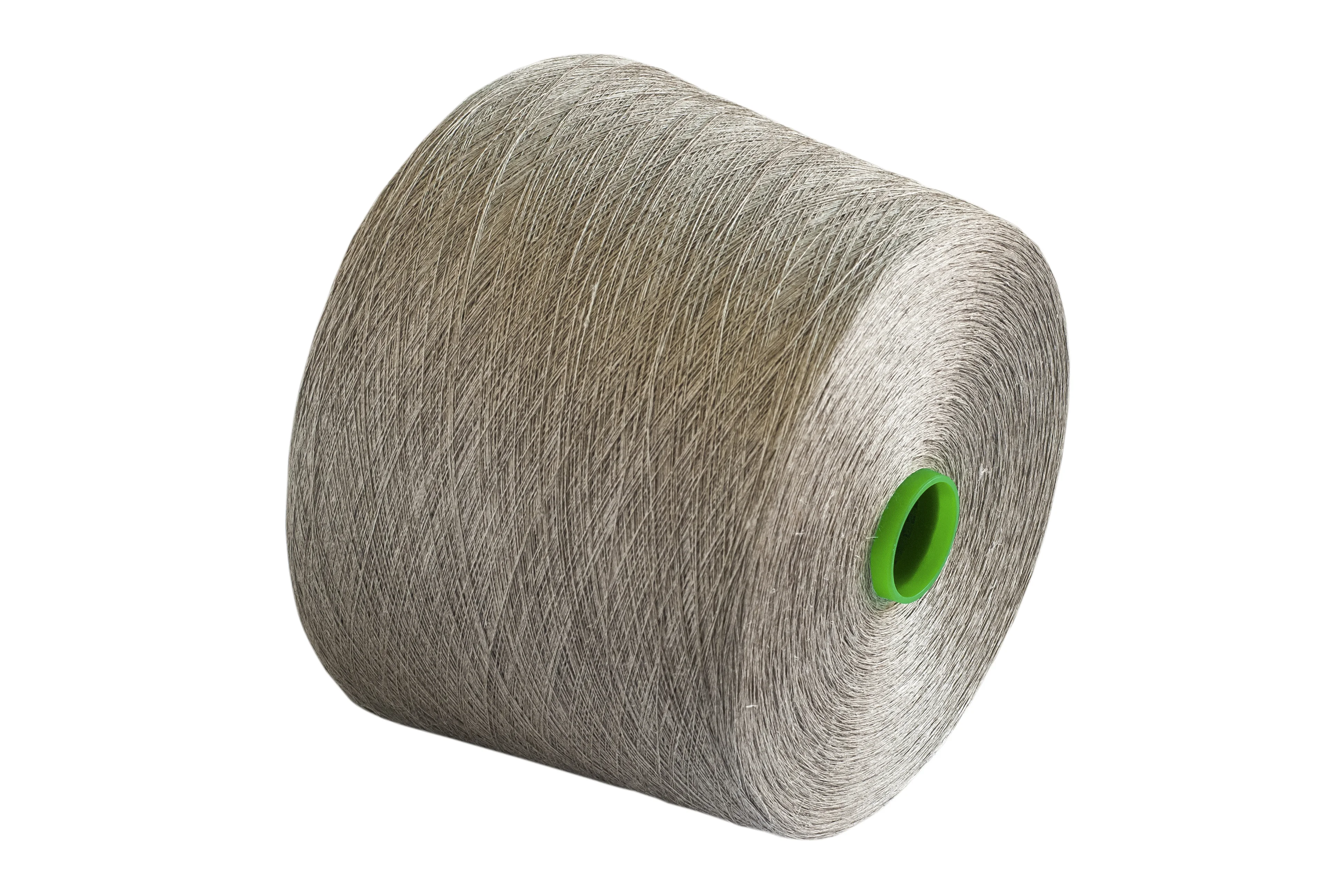In the world of textiles, linen yarn stands out as a premium choice for both its aesthetic appeal and its functional properties. As consumers become increasingly discerning about the materials they choose for their projects, understanding the technology and quality behind linen yarn, particularly the technology and quality of ASIN TEX become crucial.

Linen yarn is one of the oldest textile fibers known to humanity, with evidence of its use dating back to ancient Egypt. The process of creating linen yarn begins with the cultivation of flax plants, which thrive in temperate climates. Once harvested, the flax stalks undergo a series of processes including retting, breaking, and scutching to separate the fibers from the woody stem. The resulting fibers are then spun into yarn, which can be woven or knitted into fabric.
The Textile Technology Behind Linen Yarn
The production of linen yarn involves several key technological processes that contribute to its unique properties:
-
Retting: This is the process of breaking down the pectin that binds the flax fibers to the stem. Retting can be done through various methods, including water retting, dew retting, and chemical retting. Each method affects the quality and characteristics of the final fiber.
-
Spinning: After retting, the flax fibers are dried and then spun into yarn. The spinning process can vary, with options for both wet and dry spinning. The choice of spinning technique influences the texture and strength of the yarn.
-
Finishing: Linen yarn often undergoes finishing processes to enhance its appearance and performance. This can include bleaching, dyeing, and softening treatments, which can affect the yarn’s color, feel, and overall quality.
-
Quality Control: Throughout the production process, quality control measures are implemented to ensure that the linen yarn meets industry standards. This includes testing for strength, colorfastness, and consistency in thickness.
Quality Attributes of Linen Yarn
Linen yarn is celebrated for its numerous quality attributes, making it a sought-after material in the textile industry:
-
Durability: Linen is one of the strongest natural fibers, with a tensile strength that surpasses cotton. This durability makes linen yarn ideal for items that require longevity, such as upholstery and workwear.
-
Breathability: Linen has excellent moisture-wicking properties, allowing it to absorb and release moisture quickly. This makes linen yarn a popular choice for summer clothing and home textiles, as it helps regulate temperature and keeps the wearer comfortable.
-
Natural Luster: The natural sheen of linen yarn gives it an elegant appearance, making it suitable for high-end fashion and home décor. The luster can vary depending on the spinning and finishing processes used.
-
Eco-Friendly: Linen is a sustainable fiber, as flax requires less water and pesticides compared to other crops like cotton. Additionally, the entire flax plant can be utilized, minimizing waste.
-
Hypoallergenic: Linen is naturally hypoallergenic, making it a great choice for individuals with sensitive skin or allergies. Its breathable nature also helps prevent the growth of bacteria and fungi.
ASIN linen yarn has gained popularity among crafters and textile manufacturers for its quality and versatility. ASIN, which stands for Amazon Standard Identification Number, refers to products listed on Amazon, and ASIN linen yarn is often characterized by specific attributes that appeal to consumers.
Key Features of ASIN Linen Yarn
-
Variety of Colors and Textures: ASIN linen yarn is available in a wide range of colors and textures, allowing crafters to choose the perfect match for their projects. Whether you are looking for a soft, muted tone or a vibrant hue, ASIN linen yarn offers options to suit every aesthetic.
-
Consistent Quality: One of the standout features of ASIN linen yarn is its consistent quality. Each batch is produced with strict quality control measures, ensuring that the yarn maintains its strength, texture, and color throughout.
-
Ease of Use: ASIN linen yarn is designed with crafters in mind. It is easy to work with, whether you are knitting, crocheting, or weaving. The yarn’s smooth texture allows for effortless stitching, making it a favorite among both beginners and experienced artisans.
-
Affordability: Compared to other high-quality linen yarns, ASIN linen yarn is often more affordable, making it accessible to a wider audience. This affordability does not compromise quality, as ASIN linen yarn maintains the durability and breathability that linen is known for.
-
Sustainability: ASIN linen yarn is produced with an emphasis on sustainability. Many manufacturers prioritize eco-friendly practices, ensuring that the yarn is not only high-quality but also environmentally responsible.
Applications of ASIN Linen Yarn
The versatility of ASIN linen yarn allows it to be used in a variety of applications
-
Apparel: From summer dresses to lightweight sweaters, ASIN linen yarn is perfect for creating breathable and stylish clothing.
-
Home Textiles: ASIN linen yarn can be used to craft tablecloths, napkins, and curtains, adding a touch of elegance to any home décor.
-
Accessories: Scarves, bags, and hats made from ASIN linen yarn are not only fashionable but also functional, providing comfort and durability.
Conclusion
Linen yarn, particularly ASIN linen yarn, represents a blend of traditional textile technology and modern quality standards. Its durability, breathability, and eco-friendliness make it a preferred choice for a variety of applications. As consumers become increasingly aware of sustainability and quality, linen yarn continues to hold its place as a timeless and versatile material in the textile industry. Whether you are a seasoned crafter or a newcomer to the world of textiles, ASIN linen yarn offers an excellent option for your next project, combining the best of nature with innovative textile technology.
https://www.asinyarn.com/decoding-the-textile-technology-and-quality-of-asin-linen-yarn.html



